Disney Plus Amazon Fire and Google Chrome
Is Google Chrome the New Splashtop?
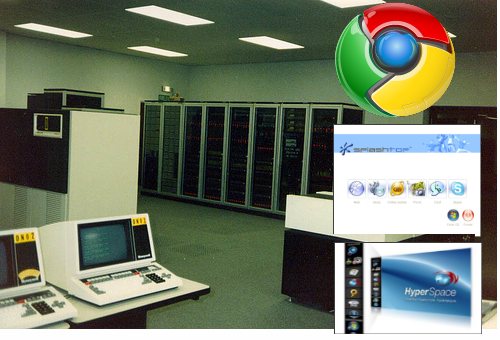
Before last week, many tech journalists had been waiting impatiently for a first look at Google Chrome like tweens standing in line to see Twilight: New Moon. Unfortunately, some tech critics were just as disappointed by Chrome's shiny new interface as movie critics were by Robert Pattinson's shiny old vampire. In truth, both the movie and the OS are new riffs on very old ideas.
GigaOM's Sebastian Ripley thinks Google is taking a big gamble with Chrome. "Chrome OS will be one of the most interesting tech stories to watch next year. In many ways, though, it's a Hail Mary," he writes.
Randall C. Kennedy of InfoWorld is less measured in his criticism. "I can finally say I've seen the future . .. and it's not Chrome OS," he writes in a column entitled Why Chrome OS will fail -- big time.
The real reason for the disappointment is that there's nothing new about Chrome. It reminds us very distinctly of instant-on, lightweight operating systems like Splashtop which have been on the market now for a couple of years. And its promise of fast boot times is already being addressed by Microsoft and many notebook vendors who are working hard to get Windows up and running in under 10 seconds.
Since at least summer 2008, we've seen netbooks and notebooks that come with a version of DeviceVM's Splashtop installed alongside Windows. Depending on the vendor, the Splashtop implementation has a different name and a slightly different theme. ASUS calls its Splashtop ExpressGate, Lenovo terms it QuickStart, and HP calls it QuickWeb on the ProBook line while naming it IOS on its Envy notebooks. No matter what you call it, Splashtop is built mainly around a browser and, though it isn't instant, it launches in well under 30 seconds.
Most versions of Splashtop have a few other apps in addition to the browser: a photo viewer, a music player, Skype, and an IM client. There's even a Splashtop for Business that, like Google Chrome, touts the enhanced security of having all its data live in the cloud. However, HP's QuickWeb version of Splashtop is just the browser:
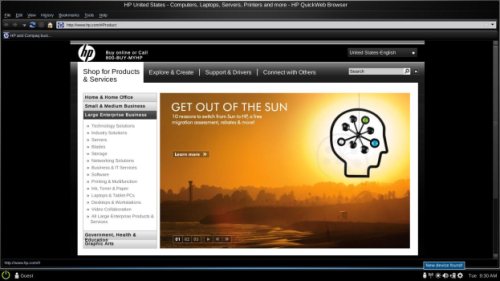
And you can see that Chrome OS looks very similar.
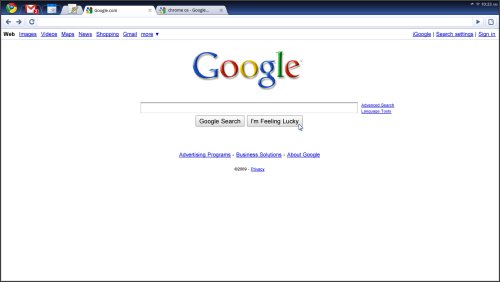
True, the Splashtop browser is based on Mozilla, not Google's Chrome browser, but the browser-only concept is what's really radical -- or not so radical -- about Chrome OS. Even Splashtop is not alone in the marketplace. Phoenix Technologies makes Hyperspace OS, another lightweight Linux which is very similar to Splashtop but can be purchased on the aftermarket. Although Hyperspace isn't currently being sold, a new version is due soon.
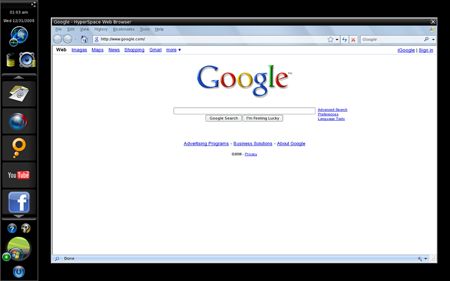
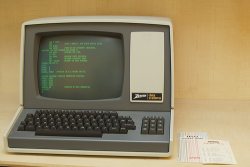
The idea of a stateless, dumb client that is completely secure and runs software directly from a server has been around since computers were giant rooms filled with vacuum tubes. Back in the 60s and 70s, teletype machines that had punchcards morphed into dumb terminals that had monochrome screens and keyboards, but all of these were absolutely useless without the servers they connected to.
The advent of the PC in the late 1970s and early 1980s was nothing short of a revolutionary, because home and business users could finally operate without being connected to a mainframe server.
For several years now, some businesses have embraced what they call "thin clients," or computers that run their software off of central servers. HP recently introduced a new set of thin client tools, and boasts a few large customers such as Jet Blue.
Still analysts like Kennedy don't see the thin client trend going mainstream.
"Simply put, the Chrome OS is too narrow. It assumes that the world is ready to give up the traditional personal computing paradigm and live full time in the cloud," he writes. "In reality, most users prefer a hybrid existence, with some of their data and applications stored locally, and others -- typically the freebies, like Gmail -- hosted online."
Indeed if users are simply looking for speed, rather than simplicity, Google Chrome may have its work cut out for it. Windows 7 has really upped the ante on OS performance and we've recently seen demos showing Windows notebooks that can cold boot in less than 15 seconds.
But others are much more bullish. "The Internet Is Everything. All the OS has to do is boot the damn computer, get me to a browser as fast as possible and then stay the hell out of the way," Michael Arrington famously wrote back in July when Chrome was first announced.
Will consumers embrace the idea of an operating system that turns their netbooks into thin clients, where apps are only Web tools they can use online rather than downloadable binaries? The answer remains to be seen, as Google may finally be able to push software publishers into putting their best apps online. But no matter what happens, it will be evolutionary, not revolutionary.

The official Geeks Geek, as his weekly column is titled, Avram Piltch has guided the editorial and production of Laptopmag.com since 2007. With his technical knowledge and passion for testing, Avram programmed several of LAPTOP's real-world benchmarks, including the LAPTOP Battery Test. He holds a master's degree in English from NYU.
Disney Plus Amazon Fire and Google Chrome
Source: https://www.laptopmag.com/articles/is-google-chrome-the-new-splashtop
0 Response to "Disney Plus Amazon Fire and Google Chrome"
Post a Comment